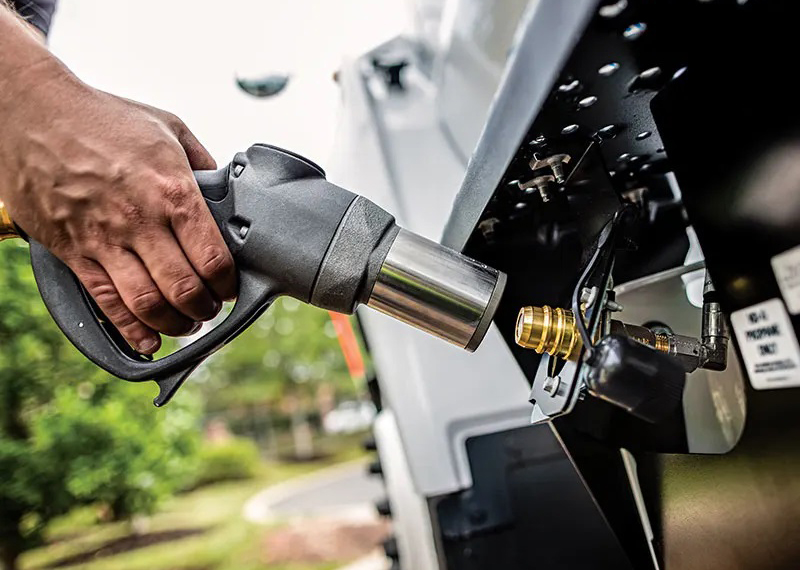Media Room
President Biden unveils new program to develop alternative fuel infrastructure

The Biden-Harris Administration opened applications for the new Charging and Fuelling Infrastructure (CFI) Discretionary Grant Program to fund alternative-fuelling infrastructure, including Autogas, in communities across the country and along designated highways, interstates, and major roadways. This is a key step towards the President’s goals of reducing national greenhouse gas emissions by 50–52% by 2030, and will be implemented by the U.S. Department of Transportation Federal Highway Administration (FHWA).
The new multi-billion-dollar CFI program, established by the Bipartisan Infrastructure Law, will provide $2.5 billion over five years to a wide range of applicants, including cities, counties, local governments, and Tribes. This round of funding makes up to $700 million from fiscal years 2022 and 2023 funding available to strategically deploy alternative vehicle-fuelling and EV charging infrastructure projects in publicly accessible locations in urban and rural communities, as well as along designated Alternative Fuel Corridors (AFCs). Applications must be submitted electronically until May 30, 2023.
The Bipartisan Infrastructure Law divides the CFI program into two distinct grant funding categories, and requires that 50% of the funding over five years is made available for each:
– The Community Program will provide $1.25 billion to strategically deploy publicly accessible EV charging infrastructure, and LPG, CNG or hydrogen fuelling infrastructure in communities. Infrastructure may be located on any public road or in other publicly accessible locations such as parking facilities at public buildings, public schools, and public parks, or in publicly accessible parking facilities owned or managed by a private entity.
– The Corridor Program will provide $1.25 billion to strategically deploy publicly accessible EV charging infrastructure and LPG, CNG and hydrogen fuelling infrastructure along designated AFCs.
“The goal of this program is to rapidly improve access to alternative fuel options and ensure energy equity by doing so in areas that have been historically underserved,” said Steve Whaley, Director of Autogas Business Development with the Propane Education & Research Council (PERC). “The fastest and most-cost effective way to achieve that goal is by implementing Autogas refuelling and LPG-powered recharging infrastructure. Both options are affordable, available, and can accelerate our nation’s decarbonisation and clean air efforts.”
For agencies interested in implementing solutions for medium-duty (class 3-7) fleets, Autogas is an ideal choice with a range of up to 400 miles on a single refuel, the performance to carry heavier payloads, and the affordability to provide the lowest total cost-of-ownership. Not to mention, the cost to purchase and install refuelling equipment for a fleet of medium- or heavy-duty LPG vehicles is a small fraction of the cost to purchase and install fast charger equipment for charging a comparable electric vehicle fleet in a comparable time frame.
“Whether agencies choose to implement Autogas refuelling stations or LPG-powered recharging, the real winners here are the communities that benefit from the cleaner air,” added Whaley. “Today’s Autogas engines reduce harmful NOx emissions by 94%, and LPG-powered generators for light commercial microgrids are significantly cleaner than diesel with near-zero NOx and CO emissions, as well as a 24% reduction in CO2 emissions.”
12 April 2023
